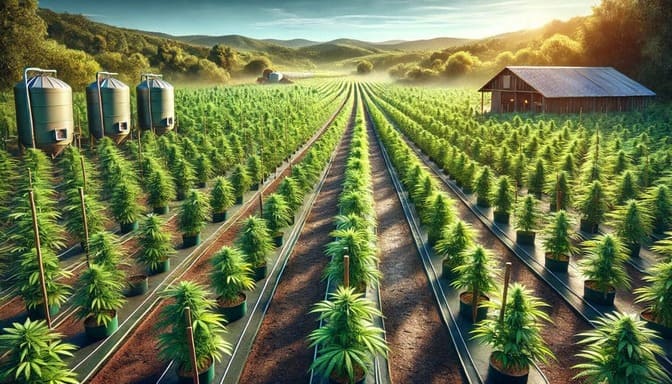Cannabis Farming: A Comprehensive Guide to Cultivation and Opportunities

The cannabis industry has undergone a remarkable transformation over the past decade, fueled by the global wave of legalization for medical and recreational use. As laws and societal attitudes continue to evolve, cannabis farming has emerged as a lucrative and fast-growing sector. Whether you are an aspiring grower or a business enthusiast, understanding the intricacies of cannabis cultivation is essential for success.
What is a Cannabis Farm?
A cannabis farm is a facility where cannabis plants are cultivated for various purposes, including medicinal, recreational, and industrial use. These farms can range from small-scale operations to expansive, state-of-the-art facilities. Depending on the intended use, cannabis farming may involve cultivating high-THC strains for recreational products, CBD-rich strains for therapeutic applications, or hemp varieties for textiles and other industrial products.
Types of Cannabis Farms
- Indoor Farms
- Controlled Environment Agriculture (CEA): Indoor cannabis farms allow growers to control factors such as temperature, humidity, light, and nutrients. This precision often leads to higher-quality yields.
- Hydroponic Systems: Many indoor farms use hydroponic or aeroponic systems, which replace soil with nutrient-rich water solutions, enhancing plant growth.
- Outdoor Farms
- Natural Cultivation: Outdoor cannabis farms rely on natural sunlight and local weather conditions. While more cost-effective, outdoor cultivation faces challenges such as pests and unpredictable weather.
- Organic Farming: Increasingly popular, organic cannabis farming avoids synthetic pesticides and fertilizers, focusing on eco-friendly practices.
- Greenhouse Farms
- Hybrid Approach: Greenhouses combine the benefits of indoor and outdoor farming, utilizing natural sunlight while maintaining some level of environmental control.
- Energy Efficiency: Greenhouses often incorporate supplemental lighting and climate controls to optimize production without the high energy costs of indoor farms.
Key Considerations for Cannabis Farming
- Legal Compliance
- Regulations vary widely by country and region. Farmers must acquire the necessary licenses and adhere to strict rules regarding cultivation, processing, and distribution.
- Site Selection
- Ideal locations offer ample space, access to water, and proximity to markets. Zoning laws and community attitudes also play a critical role.
- Strain Selection
- Choosing the right cannabis strains depends on market demand, growing conditions, and intended use. High-THC, high-CBD, and industrial hemp strains each require specific approaches.
- Cultivation Techniques
- Proper training methods, such as topping and low-stress training (LST), help maximize yields.
- Nutrient management, pest control, and irrigation systems are essential for healthy plant growth.
Challenges in Cannabis Farming
- Regulatory Hurdles
- Navigating complex legal frameworks can be daunting, especially in regions with shifting laws.
- High Start-Up Costs
- Setting up a cannabis farm involves significant investments in land, equipment, and labor.
- Environmental Impact
- Cannabis farming, particularly indoors, can be energy-intensive. Implementing sustainable practices is crucial to mitigate environmental harm.
Opportunities in the Cannabis Farming Industry
- Economic Potential
- The global cannabis market is projected to reach over $100 billion by 2030, creating vast opportunities for farmers and entrepreneurs.
- Innovation and Technology
- Advances in agricultural technology, such as automated systems and data analytics, are revolutionizing cannabis farming.
- Diversification
- Beyond recreational and medical products, hemp cultivation offers opportunities in textiles, biofuels, construction materials, and more.
Conclusion
Cannabis farming is a dynamic and promising field that requires a blend of agricultural expertise, business acumen, and regulatory awareness. By adopting innovative practices and staying informed about market trends, farmers can thrive in this rapidly evolving industry. As societal acceptance grows and new markets emerge, the future of cannabis farming looks brighter than ever.
โพสตอบ
* ต้องล็อกอินก่อนครับ ถึงสามารถเโพสตอบได้
